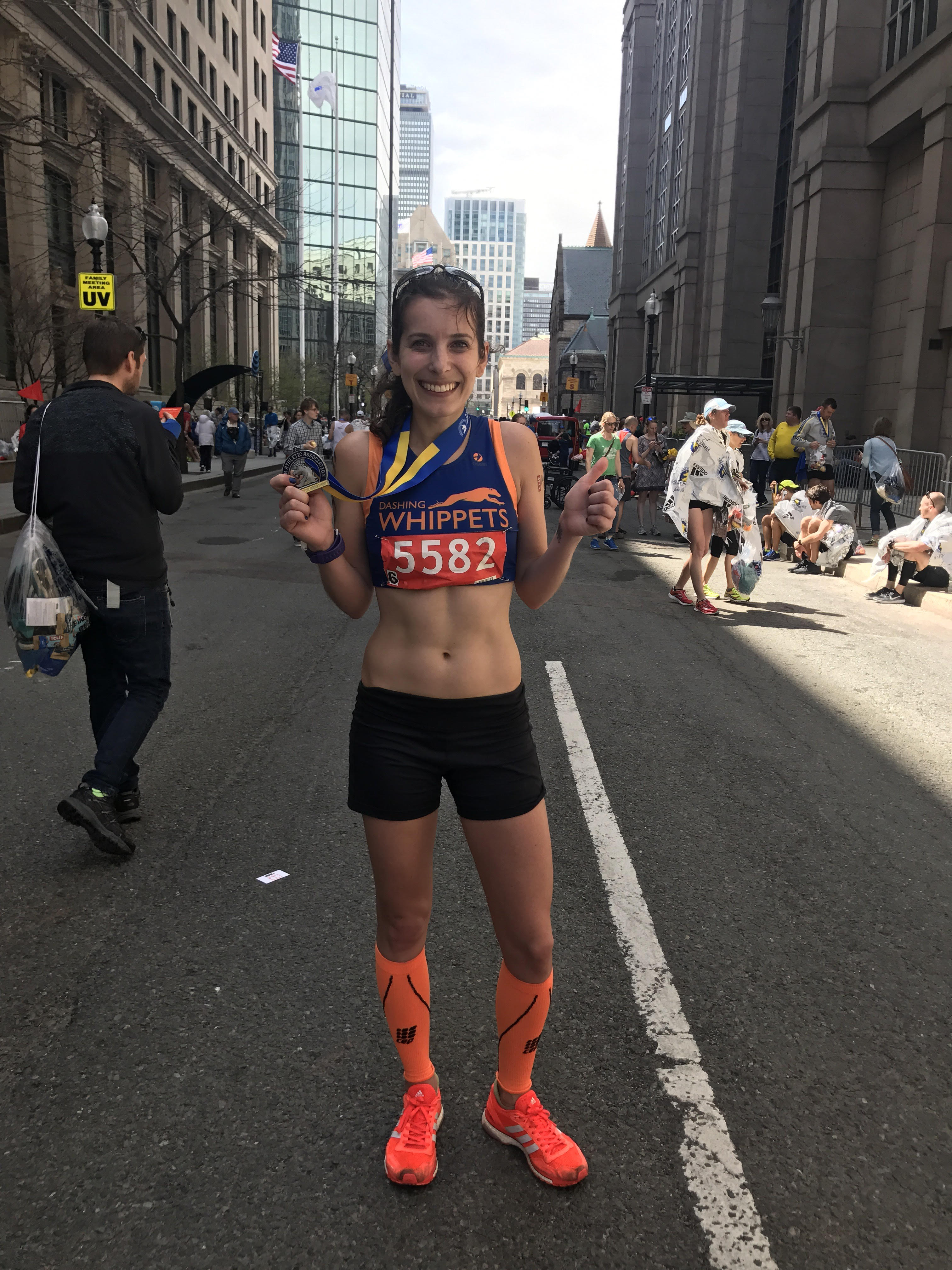In the last four years, I have trained for five marathons, with one DNF, one DNS, and now three finishes in the books. Each training cycle followed a similar pattern, where I would steadily increase mileage to over 50 miles per week, feel great for a couple of weeks, and four weeks away from race day my IT band would flare up to the point where I had to take extended periods of time off before the race. For Chicago and NYC, this “strategy” worked out in my favor and I ended up running two 3:04 on solid base training and a lot of rest, but I knew with smarter or a different type of training plan, I could prevent IT band pain and break the 3-hour barrier.
After discussing these training issues with my college coach, he suggested running in 3-week cycles of 30, 50, and 60 miles, so there was time ample time for recovery between workouts and long runs. I also had to think about long-term goals and how to best transition from marathon training to ultra-marathon training to prepare for the Marathon du Mont-Blanc in June, a 50-mile race through the French Alps. However, with a new mileage plan, and my amazing Whippet training partners Francesca, Bianca, Emmi, and Jessica, also aiming for sub-3 hour marathons this spring, I went into Boston with more confidence than usual. I felt good, but too good? I wasn’t used to this feeling.
The morning of the Boston Marathon went perfectly. I grabbed a front row seat on the bus to Hopkinton and settled in for the ride, even enjoying the pre-race activities at the school. I was giddy with excitement walking up to the starting line, but it was my first Boston Marathon and preparedness doesn’t always measure up to experience. No matter how much advice I received before the race, I was about to get schooled on this course.
Rule number one: Do not go out too fast.
This advice took on a whole new meaning by the time I surged across the starting line and saw the stampede of runners rolling over the edge like the buffaloes in The Lion King. The first 4 miles were a lesson in monitoring adrenaline and patience as I checked my watch every two minutes trying to slow down to goal pace of 6:45-6:50 and remind myself to relax. When I wasn’t checking my watch I marveled at all the hills that kept appearing, noticed the sun beating down on us, and worried about how thirsty I was. Where was the shade? I decided to start grabbing Gatorade and water every mile after the 10k, as well as bags of ice from strangers, and running through every set of sprinklers to cool off.
Rule number two: Running is 90% mental.
Around mile 9, a college teammate of mine came alongside me and asked how I was feeling. I lied when I said I felt good, but I was still on pace at this point and trying to stay positive. For a brief moment, I thought we could pace together, but instead she said her race was over. “But you look good! Keep it up,” she yelled as she drifted back. So I pressed on solo, praying to see my boyfriend and my best friend in Wellesley. Catching those familiar faces helped me reach the half in 1:28, which was a little fast and under the hot conditions, became too much to maintain. My body let me know it was struggling too when my bladder let go around mile 14. “Just keep running,” I said to myself, while the devil in my ear kept repeating my friend’s voice saying her race was over. It was a constant struggle not to give into the temptation to stop because even though I knew I wouldn’t break 3 hours at this point, the race was far from over as I entered the Newton Hills. These are the hills that break hearts in my opinion.

Rule number three: You can’t quit when you bought the jacket.
Miles 15-26 are a blur at this point. I stopped checking my watch and put all my efforts into moving forward as fast as I could go without passing out while smiling at the cheering crowds. I was dehydrated, I should’ve eaten more along the way, I should’ve gone slower in the first half, but by the time I made that final turn onto Boylston, relief and gratitude overwhelmed me. I’d made it this far, I was here in this city, doing this crazy thing, surrounded by other people as crazy as me. My body automatically wanted to kick, but with only fumes in the tank I settled for a steady roll across the finish line where I was shocked to see 3:06 on my watch.
The Boston Marathon broke my PR streak, but it did not break my spirit! It was a race of guts and will power, just the type of training I’ll need now as I prepare to hit the trails again for long hours. I’m still sore but I am already looking forward to my next Boston Marathon, whenever that is, with more appreciation and wisdom that comes from experience.

